Meet Our Students
Music technology students at Georgia Tech say it's exciting to find a program that engages their artistic and technical sides in equal measure. Our students are passionate musicians who are also interested in engineering, robotics, computing, and science.
They don't have to choose one interest over the other in their academic life.
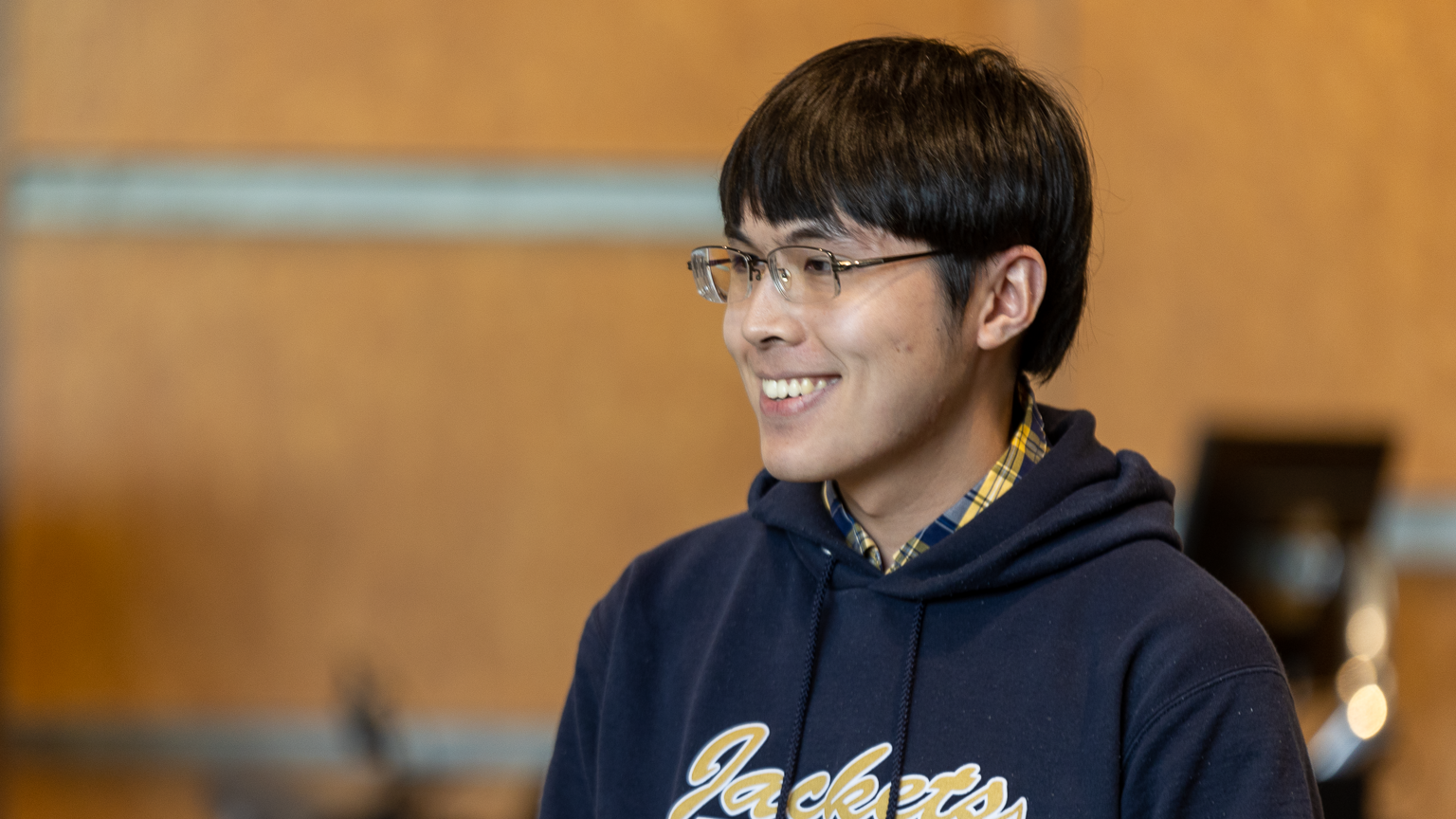
Bowen Dong
Master of Science in Music Technology 2023
Bowen Dong is a recent graduate of the Master of Science in Music Technology program. His studies examine how synthesized voices are used in comparison to real voices in pop music.
"Vocaloid is voice synthesis software for electronic music production," Dong said. "Since 2007, an online subculture community has developed around Vocaloid music, which is heavily influenced by J-Pop but not identical. I've found that synthesized voices use similar pitches and note density to human voices, but tend to use larger intervals at higher beats-per-minute than humans."
"One of the most interesting things is because of the long period of the study, I can quantify how a singer's or band's style has changed over time."
Dong's undergraduate degree is in computer science. "But I have many years experience of music, and I wanted to study music after I graduated. I came to music technology and this program as a bridge from computer science to the music industry."
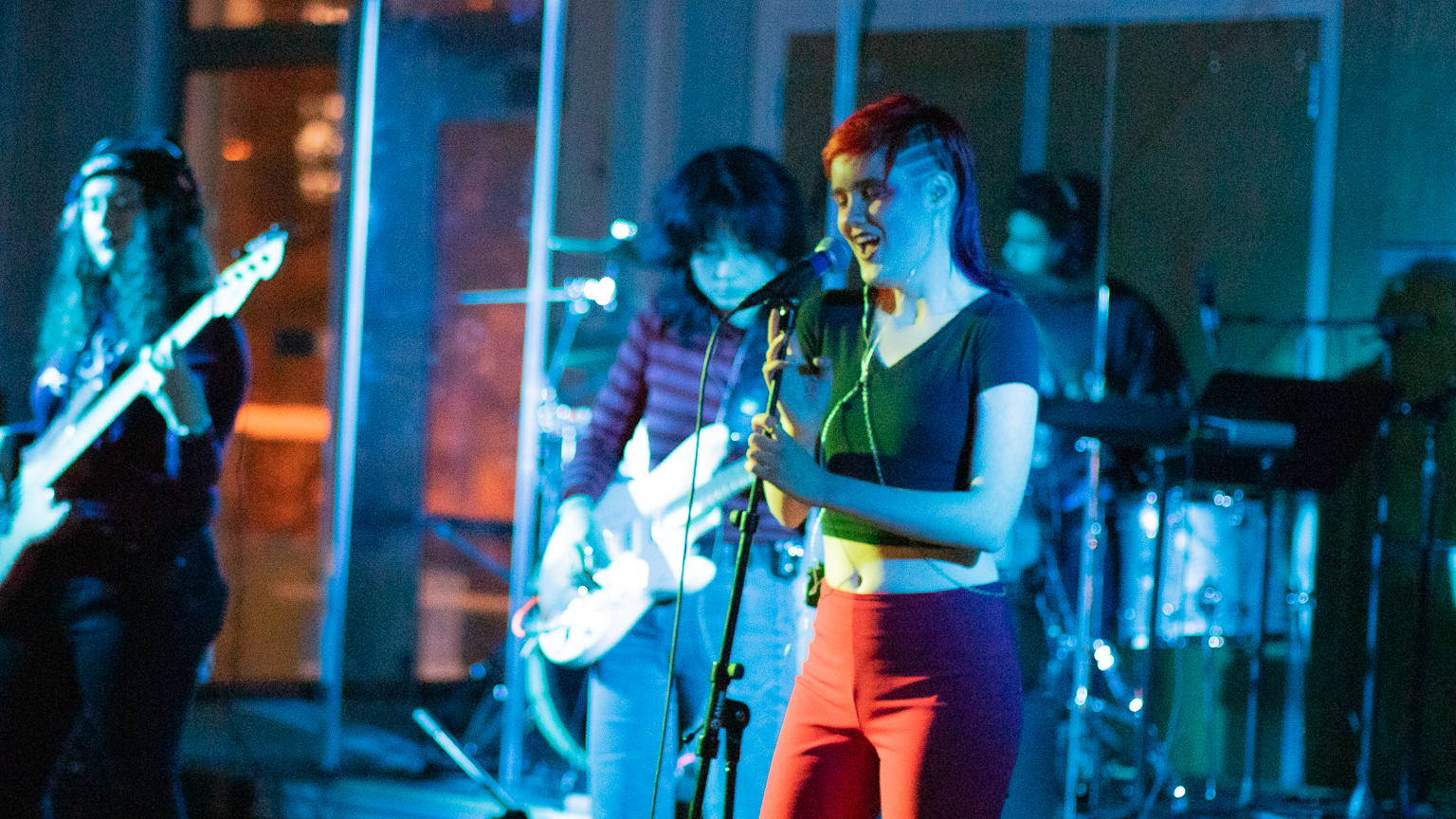
Natanya Norry
Bachelor of Science in Music Technology
Natanya Norry is currently a student in the Bachelor of Science in Music technology program. She is part of the Rock and Pop Ensemble and active in the Georgia Tech Musician's Network. "I grew up in a musical family, listening, singing, performing, and writing music," she said. "I started learning about music production several years before college."
"One of my audio tech projects was coding in a visual programming language for processing audio," Norry said. "I created a live looping version of a song that I liked, and getting to combine the computer science side of what I do and the composition and the creative side of the major has been great."
This combination of musical creativity and technological study is what drew Norry into the program, she said. "We're making software for music, making instruments, and figuring out how those things work. It just seemed to me like a much more interesting program to pursue. I could tell this would be an incredible community to be a part of."
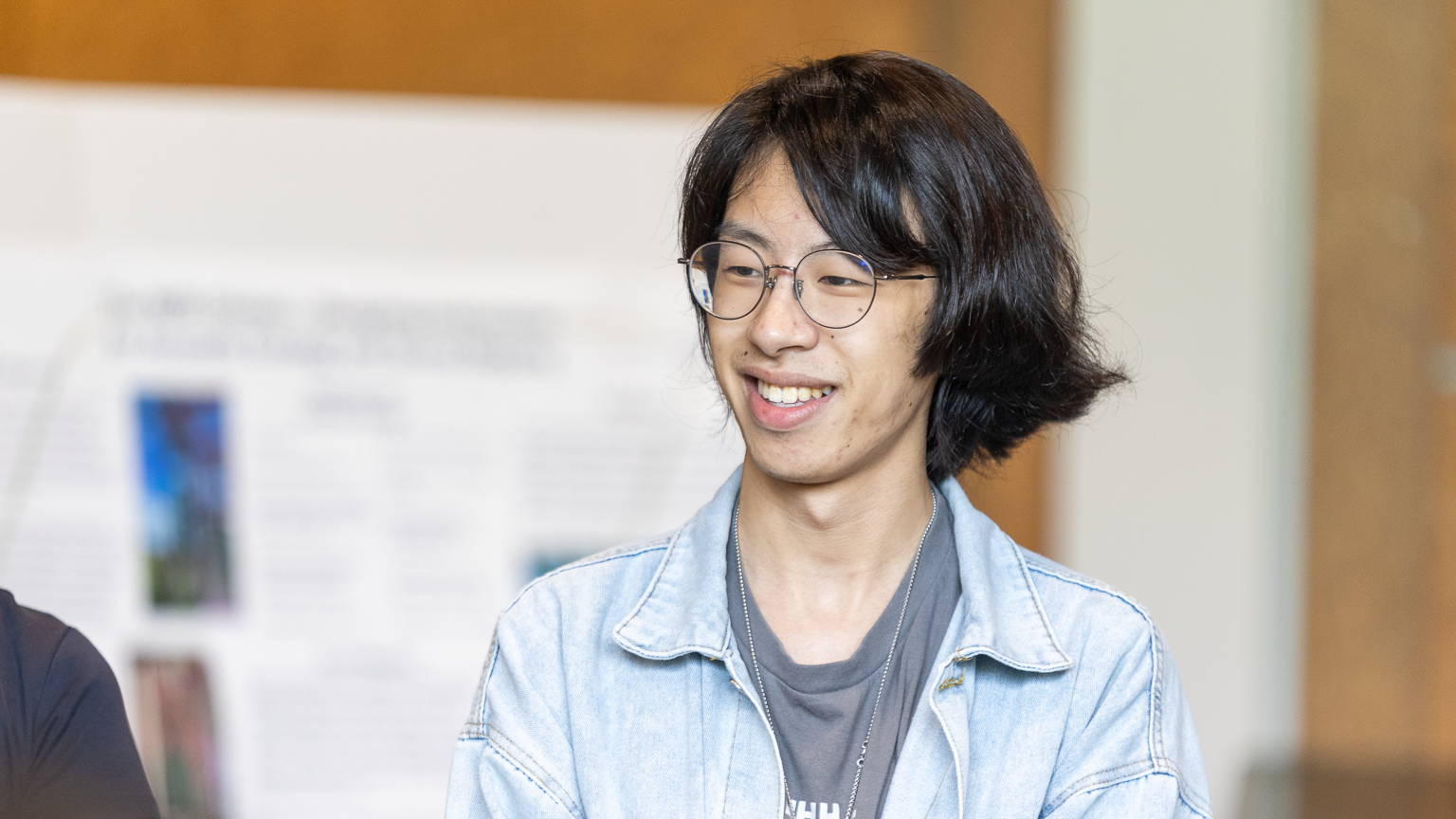
Yiwei Ding
Master of Science in Music Technology
Yiwei Ding, a second-year master's student in the Music Technology program, is working with the Music Informatics Group using machine learning algorithms to analyze audio, especially music. "What I'm doing as music classification, for example, given audio of maybe 30 seconds long identify the genre and also automatically assigning the music tags, such as what instruments are playing."
"Machine learning is based on a huge amount of data, and with a huge amount of data we need very complex models," Ding said. "But these are very slow, especially if you want to run something like this on a phone. I'm trying to do model compression to make the model smaller, but perform as well as large models."
"We can use large models that have already been trained to guide the learning of small models, that can be used in more scenarios."
"I came from a machine learning background, but I'm really very interested in music," Ding said. "You can do machine learning at many computer science programs, but one thing special about Georgia Tech is that you can meet many musicians here and learn about music in the program, not just engineering and technology."
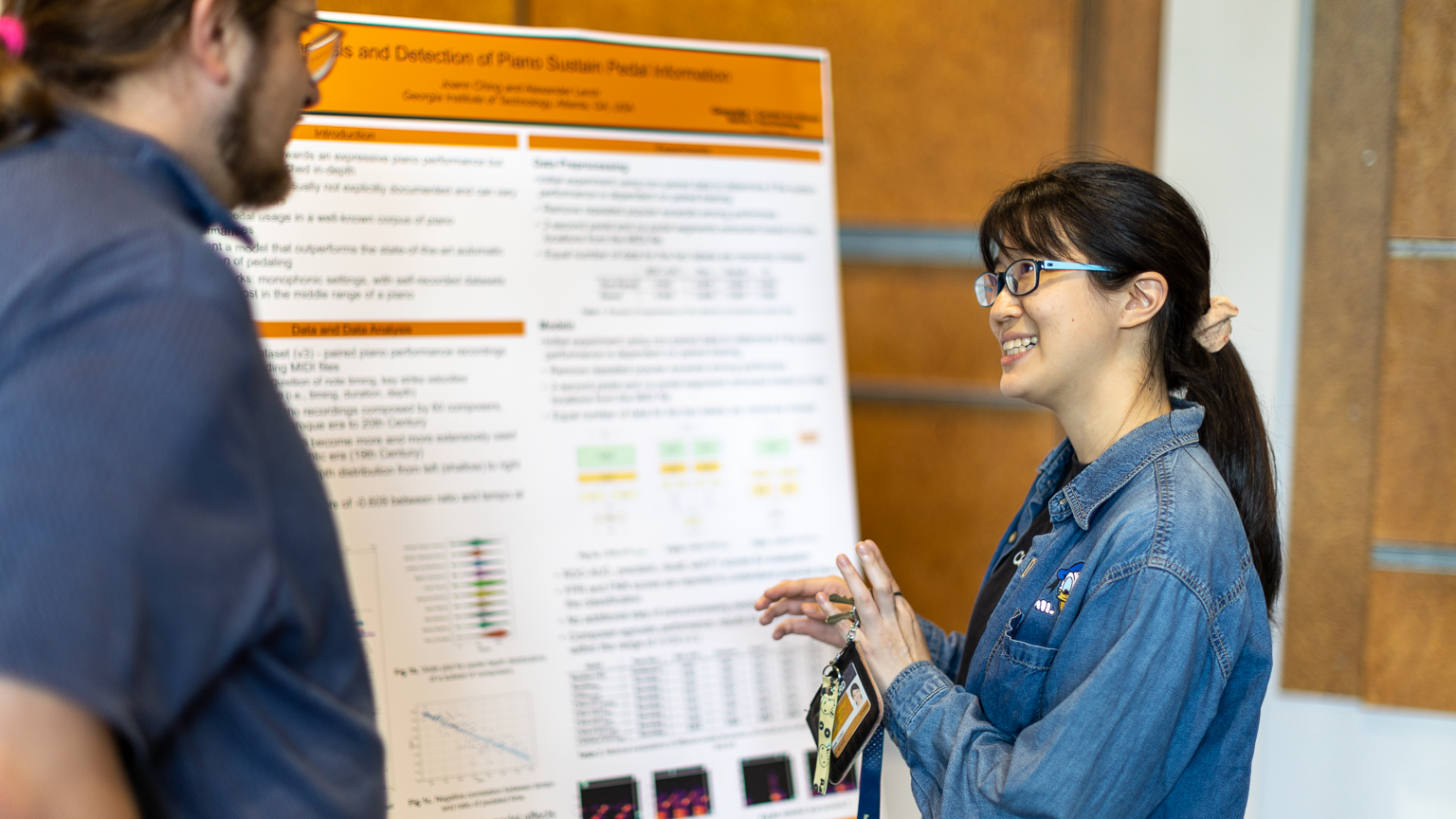
Joann Ching
Master of Science in Music Technology 2023
Recent master's graduate Joann Ching is expanding our understanding of how piano players create different interpretations of a piece of music using sustain. "Often in a piano recording you can get the score, like the notes and articulations and dynamic run notations," said Ching, "but the sustain pedal information will be very vague and up to individual interpretation."
"The sustain pedal is like a very intricate, a very detailed tool of designing the sounds that audiences hear. If we can extract the pedal information from the recording, we can compare the habits or the use differences of different performers. Eventually, by understanding how performers use the sustain pedal, we can make generated music more expressive."
"Some people say music is like a type of language. That was my starting point. What proofs can I actually find from music to say yes, music is a type of language? So I started looking in to music and computer science, music and AI. And it was at that point that I figured this is a field that I want to keep on doing for the future."
"In machine learning, the focus has been on improving the technical aspects of generated music: quantity and diversity of data, model architecture, and trends in the field. But a lot of the time, this comes at the expense of the quality of the music that is being generated."
- Rose Sun
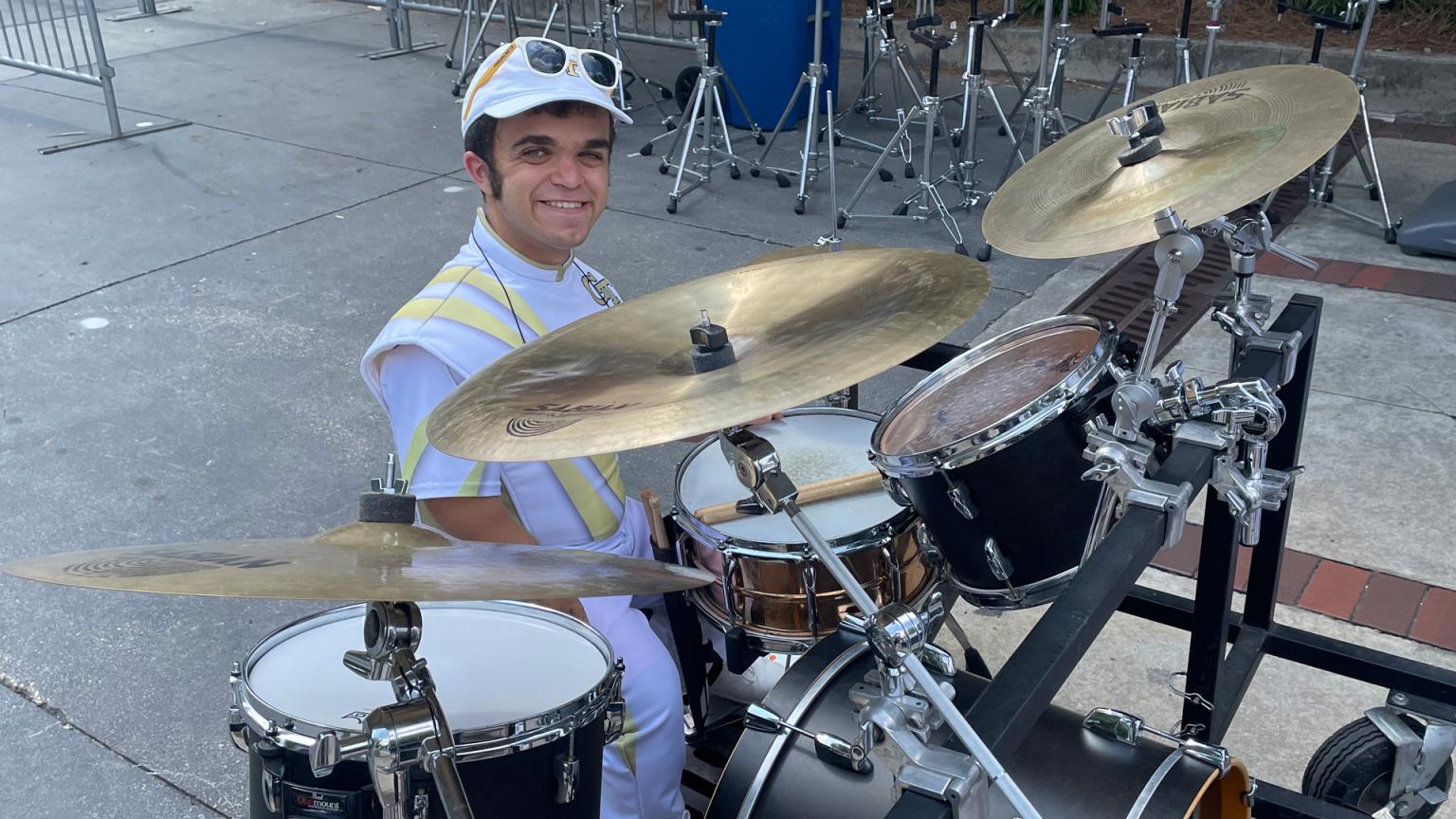
Levi Waterhouse
Bachelor of Science in Music Technology 2025
Levi Waterhouse is a second-year Bachelor of Science in Music Technology student minoring in Industrial Design. He is also a drummer for the Georgia Tech Pep Band, the outreach officer for the GT Table Tennis Association, and a past member of the marching band.
Waterhouse's interest in Music Technology is adaptability and accessibility in music. "Whether it be performance or overall experience, I have found limited areas of adjustment for people with physical disabilities in this industry," he said. "I hope to find ways through my major and minor to counteract this with advocacy and invention, although I don't yet know where that will take me."
"Georgia Tech was the perfect choice for this focus, as the various STEM and industry concepts standard in musical environments could be accessed with ease at GT (in comparison to more music-centered universities)."
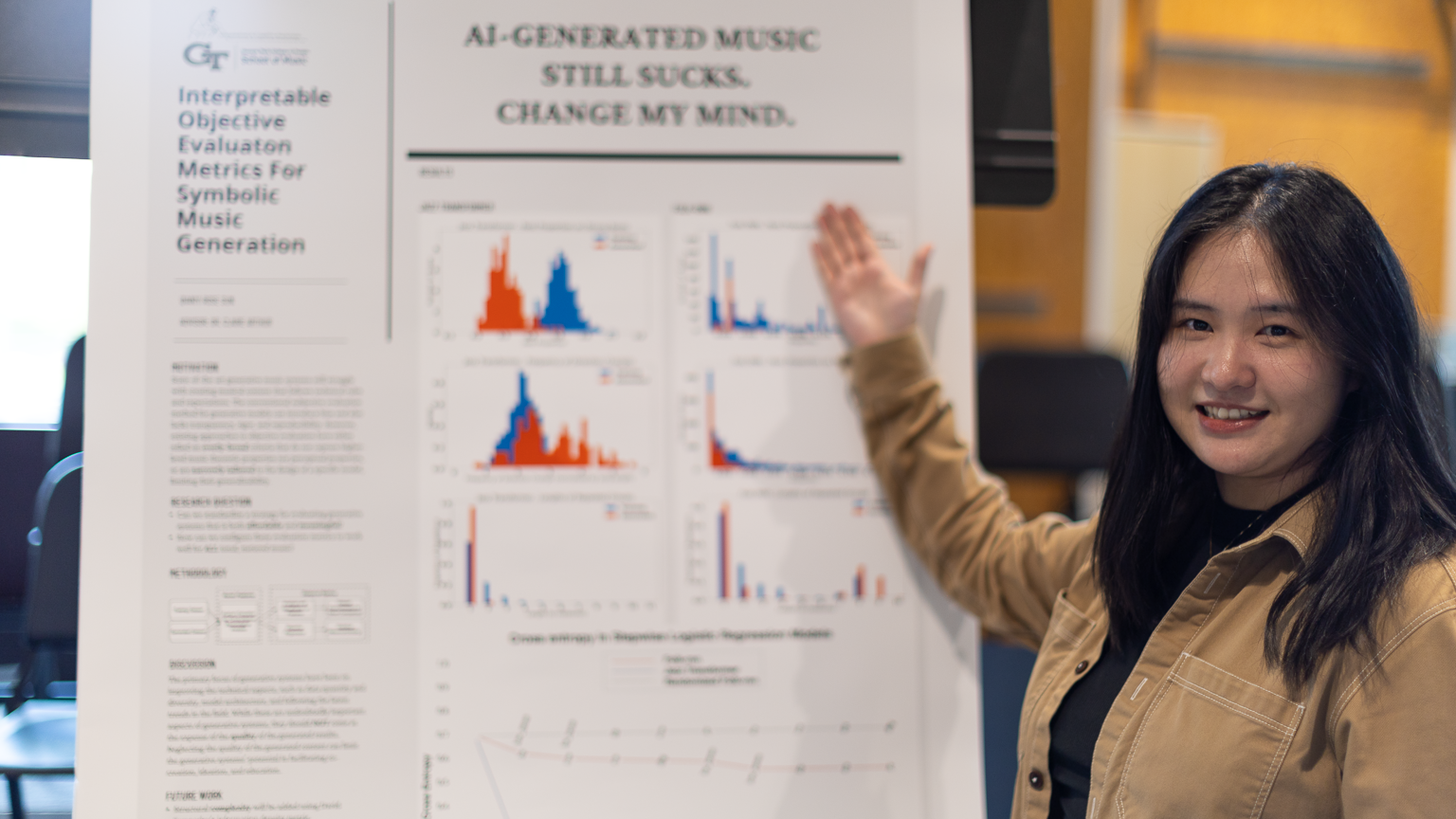
Qianyi Rose Sun
Dual Bachelor and Master of Science in Music Technology 2024
Qianyi Rose Sun is on a musical mission to overcome computational bias. A master's student in the School of Music and president of the Women in Music Technology group, Sun recently completed the Bachelor's portion of the Dual Bachelor's and Master's program.
"People ask me all the time what music technology is. I tell them I work at the intersection of musicology, data science, informatics and artificial intelligence to change the way people think about, experience, and consume music," Sun said.
Sun, who has a backgound in Chinese traditional music, realized that datasets from the US and Europe that teach computers to understand music were biased toward Western music. "One day I want to see these models generate Chinese traditional music or music from other ethnic groups."
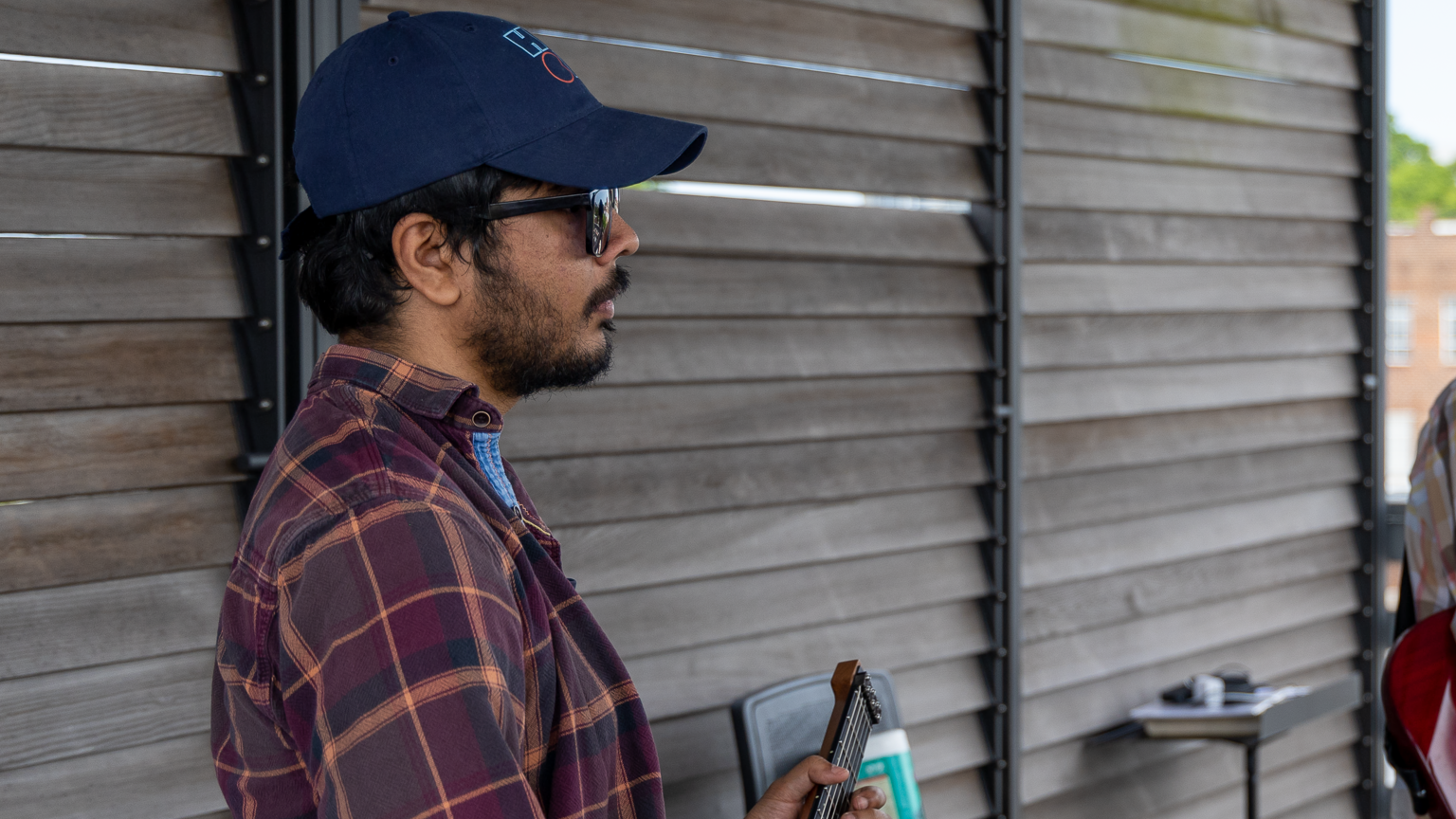
Ash Vinay
Ph.D. in Music Technology
Ash Vinay is teaching machines to hear music the way humans do. Vinay's primary goal has always been to build a better synthesizer of sounds. "But the numbers our algorithms produce don't necessarily align to human perception," he said. "That disconnect is where it's interesting."
"If we want our machines to behave more human, they need to hear and produce sound in a way humans find interesting and not annoying."
Music technology allows musicians to explore music through a vast network of technical fields, according to Vinay. "In this program, we have cognitive psychology, digital signal processing, programming, machine learning, musicology, biofeedback, and there's a lot of science that goes into all these things," he said.
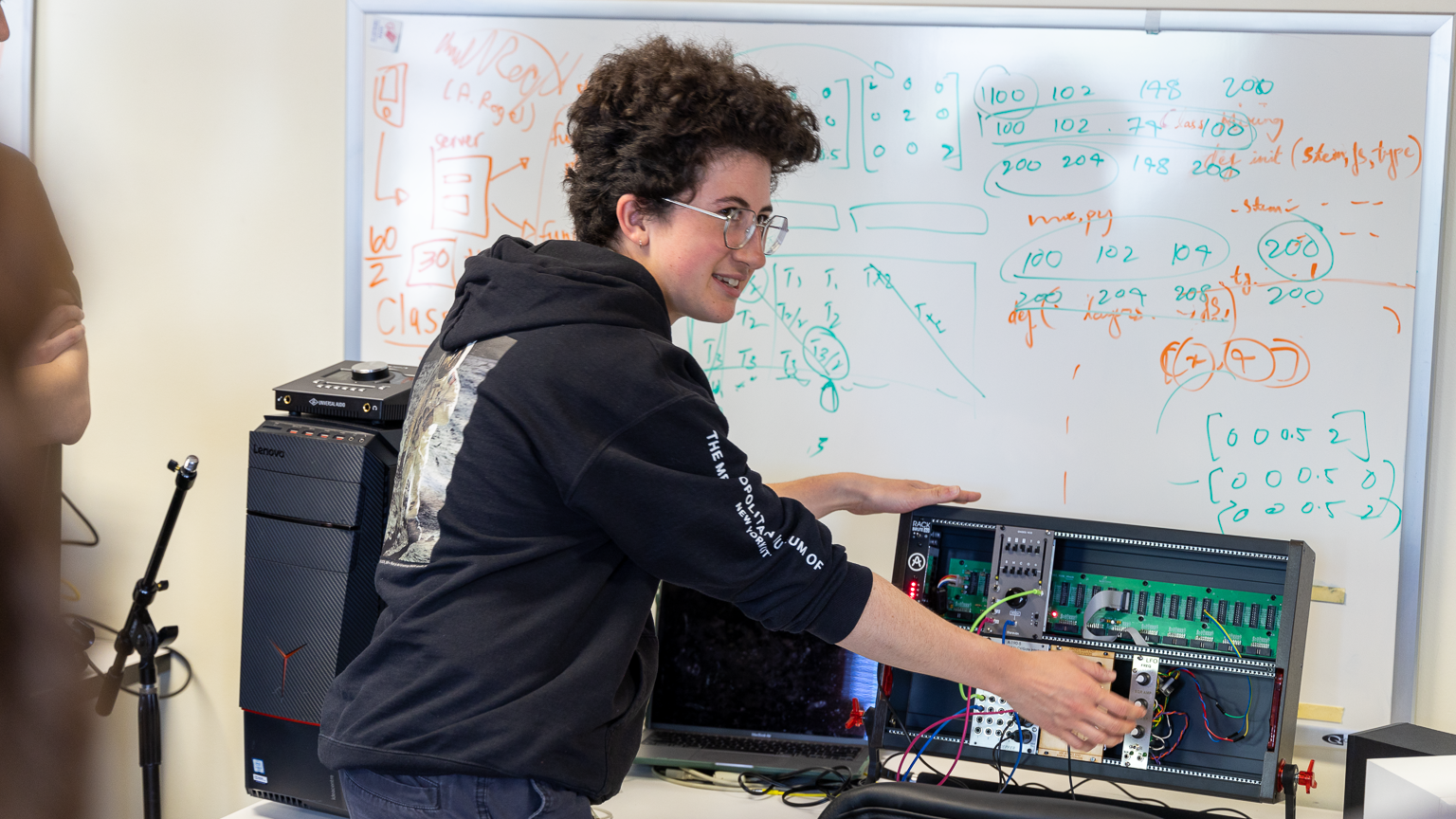
Mir Jeffres
Dual Bachelor and Master of Science in Music Technology 2024
Mir Jeffres makes audio equipment for fun. A master's student, Jeffres recently completed the Bachelor's portion of the Dual Bachelor's and Master's program, concentrating on electrical and computer engineering. "Next year, I'll be working on wearable technologies for live sound," he said.
Jeffres is a saxophonist and section leader in the Georgia Tech Yellow Jacket Marching Band, whose research focuses on augmenting live performance with technology to make it more interesting or accessible.
Growing up, his love for STEM was matched by his love of the saxophone. Jeffres was able to study both loves at Georgia Tech. "As an undergraduate, I started making tools for musicians to make music with their brainwaves, and am still working on projects from that. Later I worked with robotic musicianship on improvisation, allowing live performers to take turns with robotic performers."
"Whether it be performance or overall experience, I have found limited areas of adjustment for people with physical disabilities in this industry. I hope to find ways through my major and minor to counteract this with advocacy and invention, although I don't yet know where that will take me."
- Levi Waterhouse
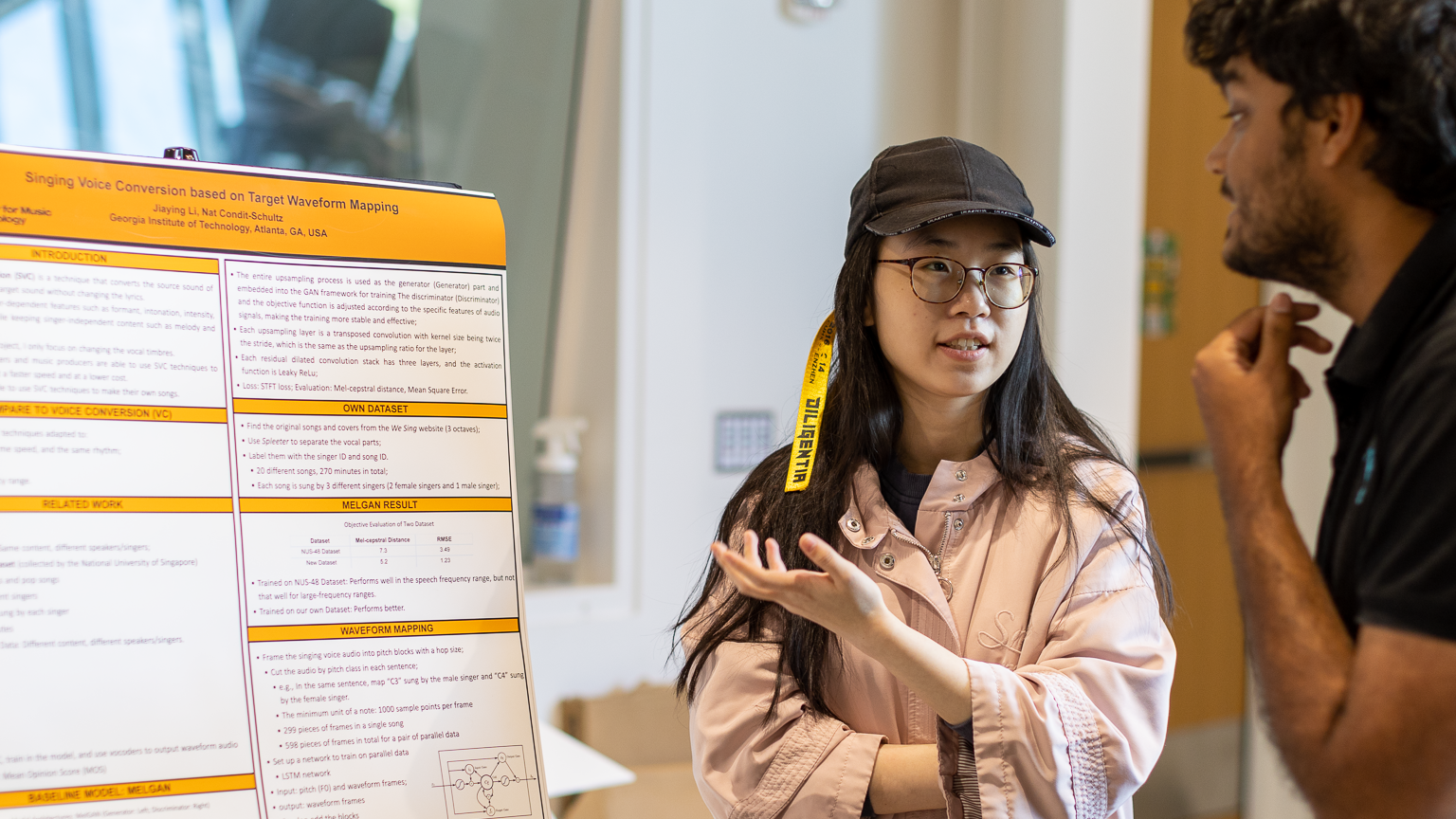
Jiaying Li
Master of Science in Music Technology
Jiaying Li is figuring out how to inject new blood into pop music trends. A Master's student, Li identified trends in how Chinese pop music reuses chord progressions, making songs sound increasingly similar. She is currently working on a project to convert one singer's voice within a song to another's voice.
"I want to make it easier for everyone to create good songs," Li said. "I played piano as a child until my hands were injured and I couldn't play any more. But music isn't just performance, it's also production. I learned about Music Technology, connecting music with science, techniques, and technology."
"I love this program because it's more technical. A lot of our goal is to find a more technical way to set up music. When we talk about Japanese music and Chinese music and Western music, we find all the styles are different. But if we talk about music technology, there is no difference across the nations in the engineering and scientific principles."
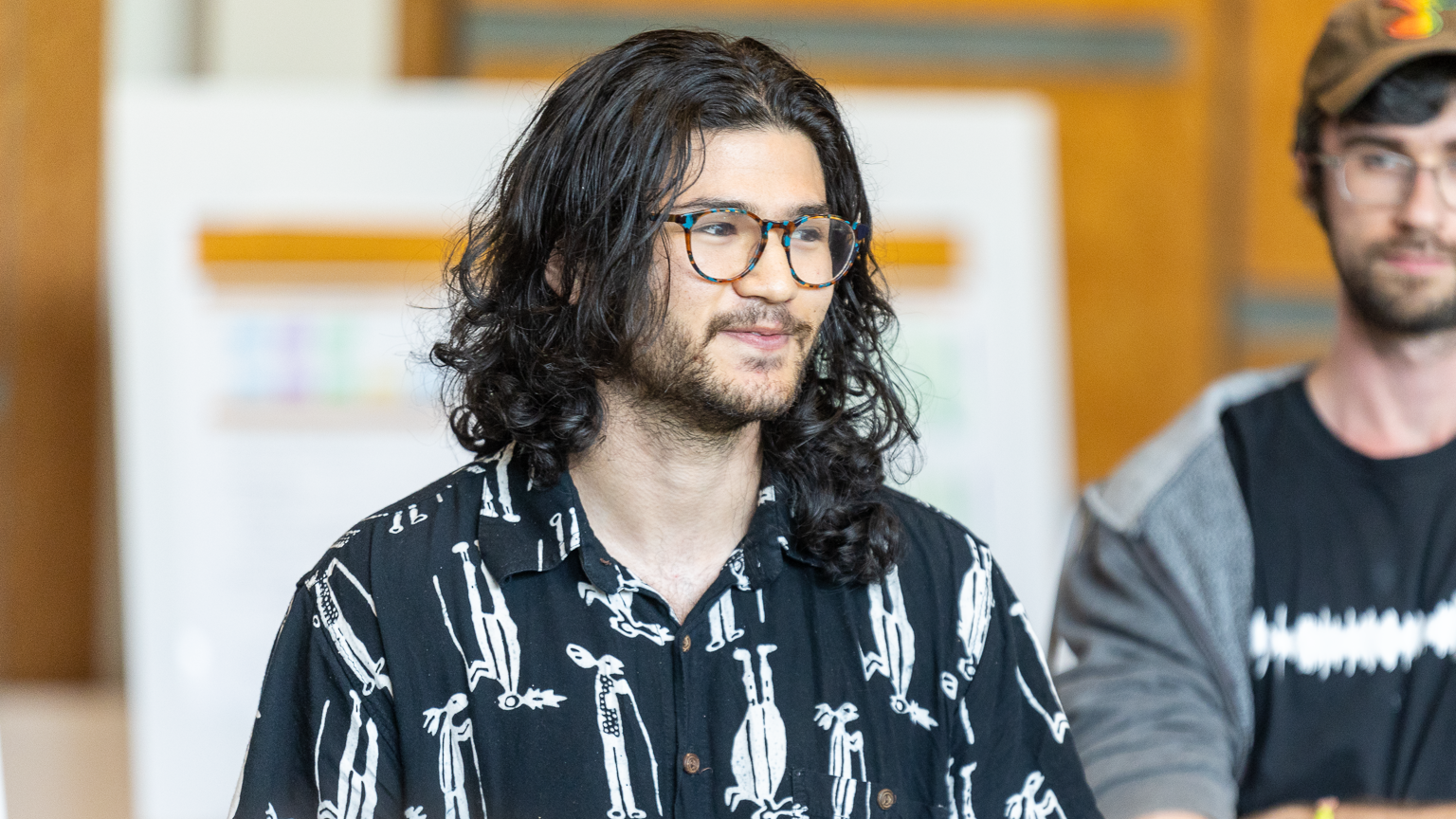
Sean Levine
Dual Bachelor and Master of Science in Music Technology 2023
Sean Levine, a recent graduate from the BS/MS dual degree program in Music Technology, is giving guitarists more flexibility to experiment with style. “I’m using deep learning to analyze guitar playing, then select guitar effects based how the player plays,” Levine said. He has interned at Waveguide LLC, Wizard Electronics, Inc., and started full-time with Bose this fall.
Levine based his project on his 15-year experience playing guitar. “You can have an amplifier with all these different presets for different styles, but I don’t want to be constantly turning through that,” he said. “So I wanted to make this system where I just play whatever I want, and it moves with me. If anything, it helps me try stuff I haven’t done before because I’ve so fixated on having this one effect.”
Music technology allows Levine to combine passion for music and skill in engineering to expand his understanding of both. “This field intermeshes two different things I know so well to gain more breadth, into things like neural networks, statistical models, and engineering problems. It’s been a really good avenue for me to branch out from things I already know.”
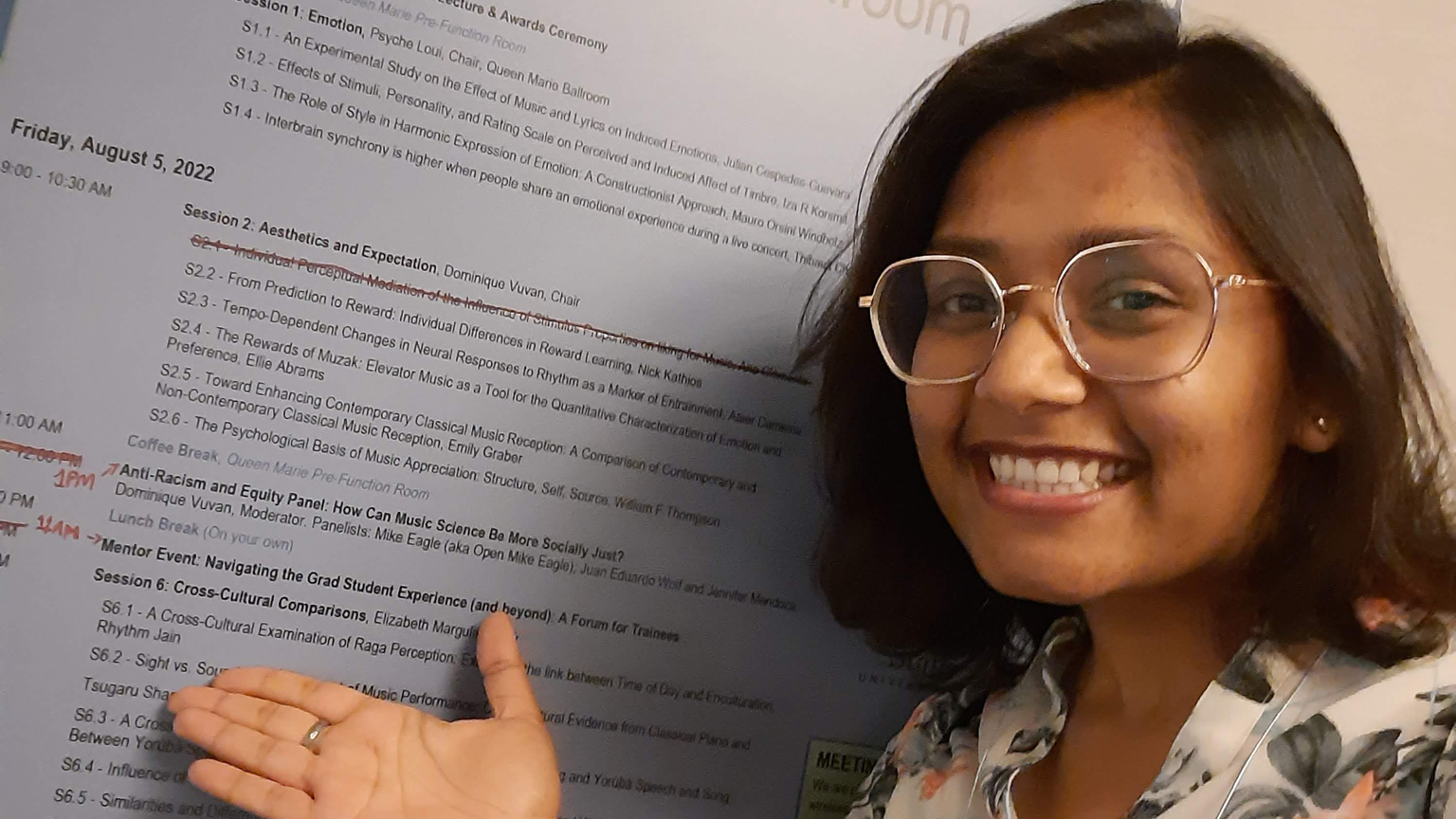
Rhythm Jain
Master of Science in Music Technology 2022
Rhythm Jain, who is a musician and a scientist, comes from a musical family that gave her the perfect name for the work she is doing now, which is all about music.
“I became fascinated by this notion that each country expressed its patriotism in different ways melodically, and how the people from different countries perceived the music differently,” Jain said. Her interest in perception and cognition of music brought her to Georgia Tech, where some of her research while pursuing a Master of Music Technology was focused on studying ragas, the melodic framework in Hindustani classical music.
Then she shifted gears to music transcription, developing algorithms to transcribe and translate the music of oral traditions. Now Jain, who has taught herself the guitar and is dabbling with electronic music and synthesizers and she is using the knowledge and skills she developed at the Georgia Tech School of Music to build music recommendation algorithms for Sirius XM/Pandora.

John McNamara
Master of Science in Music Technology 2022, Ph.D. student
John McNamara, a French horn player, earned his Master of Science in Music Technology at Georgia Tech in 2022 and is currently a Ph.D. student. His research focuses on the psychological state of "flow," which he described as when you are completely absorbed, focused, and involved in what you are doing, and enjoying the engagement.
"It’s been documented in many different activities — performing music, dancing, playing sports, even household chores — this psychological state in which you’re completely focused on what you’re doing."
Advised by Claire Arthur, McNamara is probing the role music plays in helping video game players achieve psychological flow, “where you achieve a high level of competence to the point that your actions become almost automatic," he said. "I want to get at the nitty gritty of why and how that works.”

